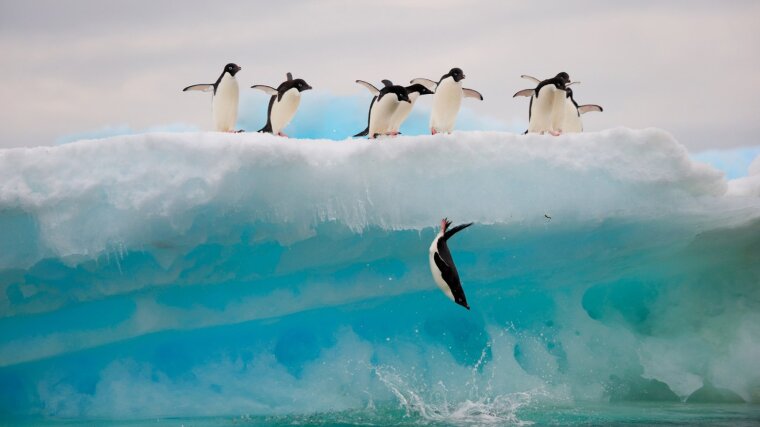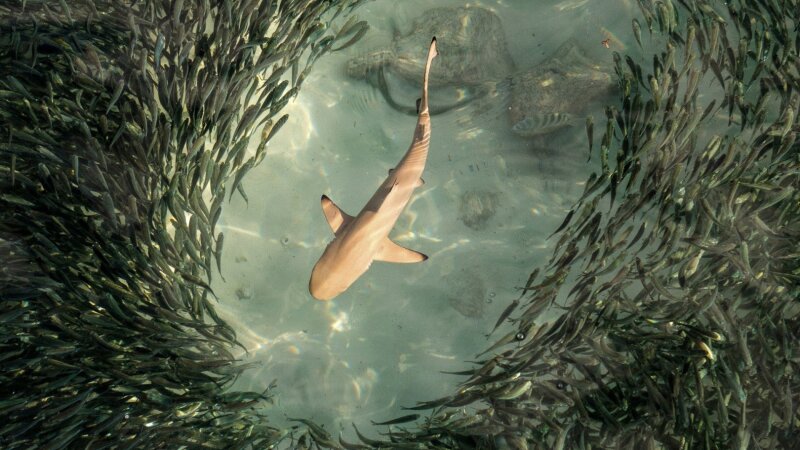
Animals that experience prolonged hunger at a young age take greater risks later in later life. This was one of the findings of a meta-study carried out by a team of researchers from the Universities of Bielefeld and Jena, who compared the risk behaviour of more than 100 animal species and revealed major individual differences. An animal’s willingness to take risks is partly innate, but it is also influenced to a large extent by the conditions in which it grows up.
By Ute Schönfelder
The lives of animals in the wild are full of risky situations with uncertain outcomes. Whether they are exploring new habitats in unfamiliar terrain or searching for new food sources, they run the risk of being caught and killed by a predator. In many instances, their very survival depends on a single decision. Whether an animal decides to take a risk or prefers to avoid danger varies greatly from one individual to another.
»Just as there are humans who are more cautious and others who take more risks, among animals of a particular species there are also individuals that are more or less risk-averse,« says Prof. Dr Holger Schielzeth. The population ecologist from the University of Jena explains that these differences are to some degree innate, but to a considerable extent they also depend on an individual’s development.
Study results compared for more than 100 animal species
As shown by the extensive meta-study conducted by the research teams directed by Holger Schielzeth and his colleague from the University of Bielefeld, Prof. Dr Klaus Reinhold, an animal’s nutritional conditions in its early years have a significant impact on its willingness to take risks in later life. The researchers have published their results in ›Biological Reviews‹.
The researchers, working with lead author Nicholas Moran, analysed more than 120 experimental studies involving over 100 animal species and the results. Species studied included spiders, insects, crustaceans, fish, amphibians and birds. Common to all the studies was the fact that the animals had experienced phases of good and bad nutrition, and that their risk appetite was measured later in life. The scientists had suspected that an animal’s living conditions and experiences would have an influence on its behaviour and even shape its willingness to take risks, but they had conflicting hypotheses on the exact nature of the influence: »On the one hand, one could assume that animals that have always enjoyed good circumstances and are therefore in a better condition would have more to lose and would therefore be more risk-averse,« explains Klaus Reinhold, an evolutionary biologist from the University of Bielefeld. On the other hand, he adds, a better nutritional status could mean that an animal would escape more easily from a risky situation, and would therefore be more likely to take a risk.
Clear effect among all examined species
The analysis of the results of all the studies has now made things clear. An insufficient food supply causes animals to engage in higher-risk behaviour: the willingness to take risks rises by an average of 26 per cent in animals that have experienced hunger earlier in their lives. »We were surprised that this result was so clear and unambiguous,« says Holger Schielzeth. The correlation applied to virtually all the behavioural contexts studied, such as exploration behaviour, migration and risky searches for food. There were of course variations in the strength of the effect.
At the moment, the ecologists can only speculate as to whether there might be a similar connection between fearlessness and individual development in humans. Holger Schielzeth would back that hypothesis; after all, humans are just another animal species.
A blacktip reef shark swims through a shoal of fish.
Image: Oliver KrügerOriginal Publication:
Poor nutritional condition promotes high-risk behaviours: a systematic review and meta-analysis, Biol. Rev. (2020), DOI: 10.1111/brv.12655External link
